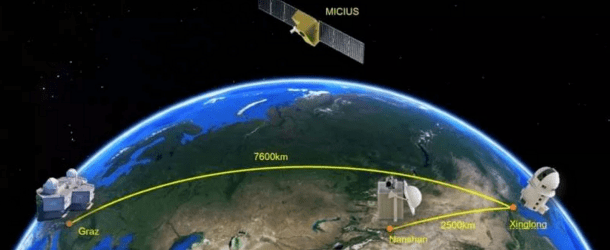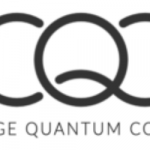Chinese Researchers to Send an ‘Uncrackable’ Quantum Message to Space

(LiveScience) Uncrackable quantum messages can now be sent through the air and will soon be beamed into space.
Researchers at the University of Science and Technology in China (USTC) worked out in 2018 how to secretly share “quantum keys” between orbiting satellites and ground stations.
But the quantum secrecy tool Micius originally used had a few leaks, requiring scientists to develop a more advanced form of quantum encryption known as measurement-device-independent quantum key distribution (MDI-QKD). Now, those same researchers have, for the first time, pulled off MDI-QKD wirelessly, across a city in China, without any fiber optics involved. And they’re getting ready to send MDI-QKD up to Micius.
“The results by the Chinese group [are] very interesting for the quantum communication community,” said Daniel Oblak, a quantum communications researcher at the University of Calgary in Ontario who did not work on the experiment.
While China has been doing standard QKD with Micius since 2018, no one had until now figured out how to do the more unbreakable encryption system over long distances without fiber-optic cables to carry the photons back and forth.
In the new study, the researchers sent a MDI-QKD secure key across 11.9 miles (19.2 kilometers) of open air between two buildings in the city of Hefei. To make sure the photons arrived at the relay at exactly the same time, they developed algorithms that enabled the sender and receiver devices to account for the fluctuations in that stretch of atmosphere.
Getting MDI-QKD into space will require more problem-solving, including better algorithms that can account for the even greater distances involved. “The second challenge we hope to overcome is associated with the motion of satellites,” Qiang Zhang, one of the authors of the paper.
A moving target changes the behavior of photons in ways that have to be very precisely accounted for in order to make sense of the signal.
Tittel said that the motion of the satellite makes MDI-QKD “very difficult,” but that it’s plausible the USTC team might pull it off.



















